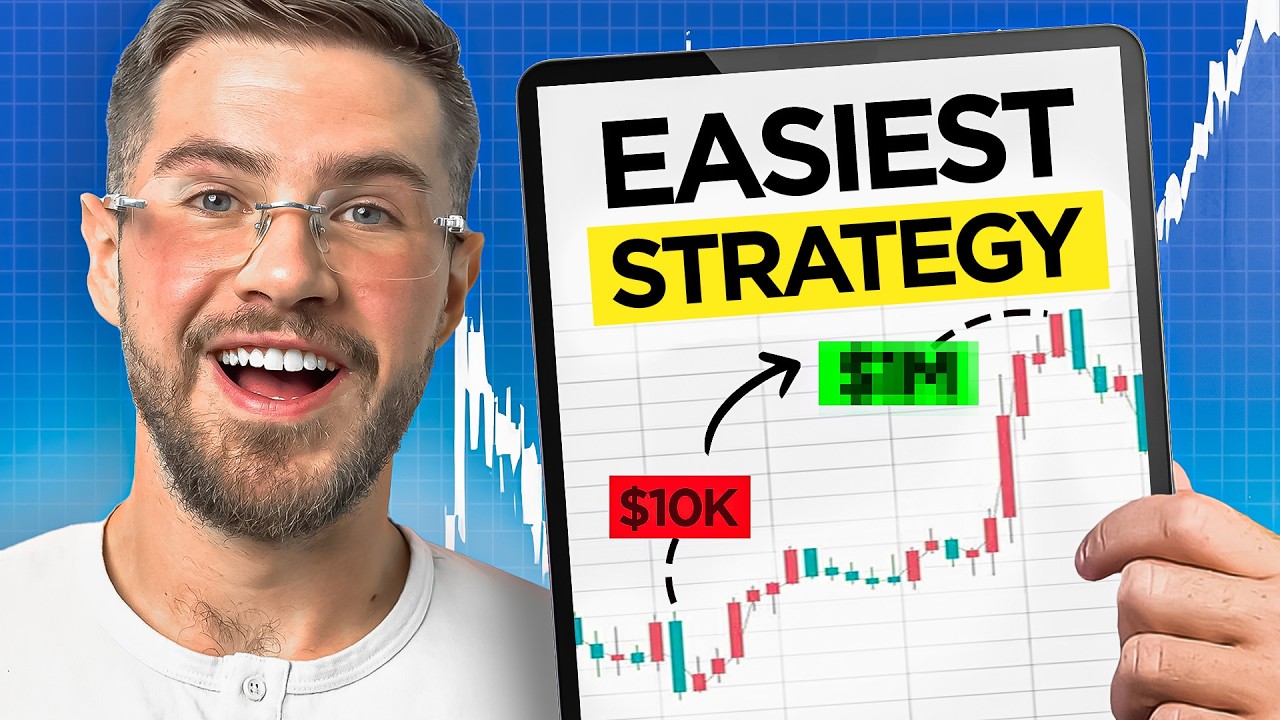How Risking More than 2% of your capital on a single trade is reckless - Funded Trading Plus
Summary
TLDRIn this episode of We Are Funded Trading Plus, hosts Jamie and another trader engage in a lively discussion on various trading topics, including the risks of over-leveraging capital and the necessity of risk management versus strategy. They explore the importance of sustainability in trading practices, the role of proprietary trading platforms, and the criteria for funding traders based on experience. The conversation emphasizes the need for transparency in performance metrics among prop firms and concludes with the assertion that successful trading requires a balance of risk management and a solid strategy.
Takeaways
- 😀 Risking more than 2% of your capital on a single trade is considered reckless and unsustainable.
- 😀 Incrementally building an account balance is a safer and more effective trading strategy.
- 😀 Traders should maintain a long-term perspective, understanding that losing streaks are common in trading.
- 😀 Prop firms should focus on their strengths and avoid developing proprietary platforms unless they have the expertise.
- 😀 Experience requirements for traders can vary, and not all traders need extensive track records to prove their skills.
- 😀 Automated trading systems have potential, but they should not be viewed as guaranteed profit machines without human oversight.
- 😀 Transparency in trade performance metrics can help clients make informed choices and build trust in trading firms.
- 😀 Successful traders are determined and focused, often disregarding negative statistics about overall success rates.
- 😀 A blend of risk management and trading strategy is essential for achieving success in trading.
- 😀 The trading industry has a culture of secrecy, but firms that embrace transparency can stand out and attract more clients.
Q & A
What do the hosts believe about risking more than 2% of capital on a single trade?
-The hosts strongly agree that risking more than 2% of capital on a single trade is reckless, emphasizing that it is unnecessary and can lead to significant losses.
How do the hosts view the relationship between risk management and trading strategy?
-The hosts believe that effective trading requires a balance between risk management and strategy. While good risk management is crucial for survival, having a coherent strategy is necessary for achieving long-term success.
What is the hosts' perspective on proprietary trading firms developing their own platforms?
-The hosts argue that while there may be some benefits to proprietary platforms, traders prefer familiarity with existing platforms, and firms should focus on their strengths instead of venturing into software development.
What is the importance of transparency in performance metrics for prop firms, according to the hosts?
-The hosts discuss the need for transparency in performance metrics, suggesting that sharing information can help clients make informed choices, though they acknowledge that individual trading performance is a private matter.
How do the hosts define 'proven experience' for traders in prop firms?
-The hosts highlight that the definition of 'proven experience' can vary, noting that while traditional measures may not apply, prop firms often need to adapt to provide quicker funding opportunities for traders.
What concerns do the hosts express about automated trading systems?
-The hosts express skepticism about off-the-shelf automated trading solutions, arguing that while technology is advancing, a human element is still necessary in trading to make informed decisions.
What do the hosts believe about the potential impact of AI on trading in the future?
-The hosts think that as AI technology continues to develop, it may eventually reach a point where automated systems can outperform human traders, fundamentally changing the trading landscape.
How do the hosts feel about the industry's culture of secrecy?
-The hosts express concern about a culture of secrecy within the trading industry, suggesting that greater openness could help combat misinformation and foster a more informed trading community.
What rationale do the hosts provide for why risk management is vital in trading?
-The hosts emphasize that effective risk management allows traders to survive longer in the market, as it prevents significant losses and gives traders more time to develop their strategies.
In what way do the hosts suggest that prop firms could benefit from democratizing their evaluation processes?
-The hosts suggest that by allowing traders of various experience levels to demonstrate their skills within set parameters, prop firms can uncover hidden talent and not miss out on potentially skilled young traders.
Outlines

Dieser Bereich ist nur für Premium-Benutzer verfügbar. Bitte führen Sie ein Upgrade durch, um auf diesen Abschnitt zuzugreifen.
Upgrade durchführenMindmap

Dieser Bereich ist nur für Premium-Benutzer verfügbar. Bitte führen Sie ein Upgrade durch, um auf diesen Abschnitt zuzugreifen.
Upgrade durchführenKeywords

Dieser Bereich ist nur für Premium-Benutzer verfügbar. Bitte führen Sie ein Upgrade durch, um auf diesen Abschnitt zuzugreifen.
Upgrade durchführenHighlights

Dieser Bereich ist nur für Premium-Benutzer verfügbar. Bitte führen Sie ein Upgrade durch, um auf diesen Abschnitt zuzugreifen.
Upgrade durchführenTranscripts

Dieser Bereich ist nur für Premium-Benutzer verfügbar. Bitte führen Sie ein Upgrade durch, um auf diesen Abschnitt zuzugreifen.
Upgrade durchführenWeitere ähnliche Videos ansehen

Scaling Series: Risk Management

The Only Way To Pass Funded Trading Accounts by ICT | FTMO-APEXTrader - MyforexFunds - TopStep

Capital protection comes first, how this trader lost his $40k payouts and $400k funded accounts

How to START Day Trading For Beginners 2024 (FULL COURSE)

EASIEST ICT STRATEGY | No Daily Bias | Works on ALL MARKETS

If I Lose Everything Trading, Here's How I'd Restart From $0
5.0 / 5 (0 votes)
